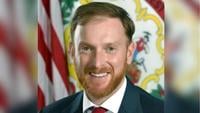
CHARLESTON – The West Virginia and Raleigh County boards of education say a circuit court judge exceeded his authority in certifying a class action in a case about religious exemptions to the state’s school vaccination requirements.
The boards filed a writ of prohibition November 5 asking the state Supreme Court to halt the class certification in the Raleigh County case before Circuit Judge Michael Froble that could affect similar cases in other counties across the state. The case before Froble was brought by two Raleigh County families seeking to have religious exemptions recognized by public schools through the state’s Equal Protection for Religion Act.
Nearly 600 West Virginia families have requested and received religious exemptions to school vaccination laws, according to court documents. All of them, as well as families who seek such exemptions in the future, could be part of the class for the court.
“Here, the court’s class certification order effectively guarantees that when it grants the permanent injunction, hundreds of unvaccinated children will be permitted in West Virginia’s public schools,” attorneys for the school boards wrote in their November 5 petition to the Supreme Court. “Making petitioners wait until that happens to seek appellate relief renders any relief essentially meaningless, as the children will already be in the schools.”
The boards also say they have been prejudiced in a way that is not correctable on appeal.
“The Circuit Court (Froble) exceeded its jurisdiction and entered an order certifying a class in a case where the primary relief sought was injunctive relief only as to the named plaintiffs,” the petition states. “That decision creates confusion statewide and threatens to alter or derail other litigation against the petitioner boards. …
“In other religious exemption cases, some plaintiffs have indicated that they intend to dismiss their claims and seek class relief instead of continuing to prosecute their existing cases. Thus, the Circuit Court’s extra-jurisdictional class certification decision threatens to extinguish actions pending in other circuit courts with actual jurisdiction. If the Circuit Court’s order is invalid, and if the court does not halt that order now, these cases will be thrown into chaos, which will be nearly impossible to unwind by merely resolving the appeal of this case.
“Moreover, the Circuit Court’s order takes important questions of equity away from judges sitting in their respective counties. The Circuit Court of Kanawha County held as much when dismissing a concurrent action by a parent seeking to avoid the Vaccine Law through EPRA.”
The boards say Froble granted motions to amend the complaint to add class allegations and moved for class certification midway through a bench trial.
“The Circuit Court granted both motions from the bench without oral argument, stating that its ruling ‘should be no surprise, because it’s the court’s position that’ this was a class action ‘case to begin with’ and that it wanted to certify a class all along, saying, ‘as the parties know, the court had [asked] on a couple occasions why it had not been moved for certification,’” the boards’ petition states.
Regardless of Froble’s desire to grant statewide relief, the boards say his class certification was in error.
“The Circuit Court’s extra-jurisdictional, erroneous class certification threatens to upend not only this case but other cases involving religious exemptions to the Vaccine Law across the state,” the petition states. “Therefore, this Court should first issue a show cause order staying the case below to maintain the status quo while this Petition is pending and ultimately issue a writ of prohibition reversing the Circuit Court’s class certification order.”
The state school board already has filed an intent to appeal the case to the state Supreme Court. It has a December 12 deadline for that. The families seeking religious exemptions to be able to opt out of school vaccinations have until January 26 to file their response. Any response to that by the school boards would have until February 16 to do so.
The state’s vaccination law requires students entering school for the first time to show proof of immunization against diphtheria, pertussis, tetanus, polio, measles, mumps, rubella, varicella and hepatitis B unless properly medically exempted.
West Virginia previously has been one of only five states that do not allow religious exemptions for vaccines, but Gov. Patrick Morrisey issued an executive order in January requiring the state to accept such exemptions, linking EPRA with the vaccine law that was written in 1937 and doesn’t explicitly include religious exemptions. The Morrisey administration then directed families to apply for exemptions through the state health department, but West Virginia school systems have not accepted them.
The state Legislature voted down a bill this spring that would have written the religious exemption into state law, and the state Board of Education continues to tell county school boards to accept only medical exemptions as previously done.
EPRA allows citizens to sue if they think their religious beliefs are being suppressed, but it also includes other factors, such as if a compelling state interest exists. The school boards say the law applies to individuals but not groups, such as the class in a potential class action lawsuit.
But in his order, Froble says joining the cases is reasonable because of the number affected and the geographic distribution.






